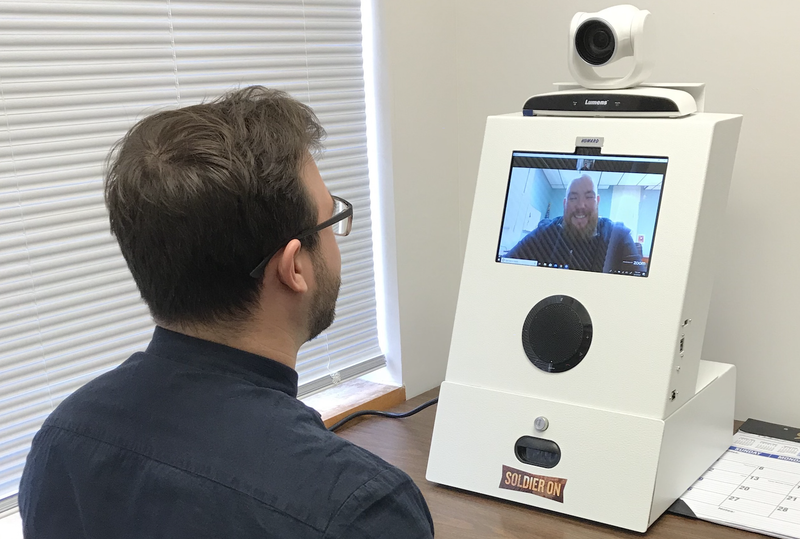
Soldier On, in partnership with Let's Talk Interactive (LTI), is using telemedicine technology to continue to treat veteran's mental health issues despite the COVID-19 pandemic, with some unexpected results.
"Prior to using this innovation I was visiting veterans, driving 13 hours a week. Now because of the virus, I'm at home. Last week and this week as well, I treated 24 individuals. It frees me up to do more work because I'm not on the road that much and I have more energy," Kevin Cahill told Connecting Vets. Cahill is a psychotherapist and the executive director of clinical services for Soldier On.
Bruce Buckley, the CEO and president of Soldier On, described how his organization has been involved in helping veterans in need since 1994. Using funding from the Department of Veteran's Affairs, Soldier On gets homeless veterans off the streets and into housing. Then the group provides legal, medical and other services to help them get back on their feet.
The results of moving entirely to telemedicine were surprising to the staff at Soldier On.
"An unexpected thing with the technology is that I feel closer to the client because I'm at home, no distractions, and I'm face-to-face with that individual instead of being in a noisy homeless shelter," Cahill said of his meetings with patients conducted electronically. Cahill treats veterans who served in conflicts from Vietnam to the Global War on Terror. Since mid-March Soldier On has had 79 client meetings. Forty-seven of those meetings were with Cahill and the others were with case managers.
Cahill had some concerns about working with patients remotely but found that "as a clinician trying to catch the nuance of their facial expressions and congruity of their emotions, I find no deficits. I was concerned I would not be able to access the body language with the technology."
When asked if he would continue this practice after the pandemic subsides, Cahill said, "revolution might be too strong a word but it is going to change the way I do my practice. I will still meet people on a regular basis but I will use the telehealth system to treat patients. It increases my availability to do the tests I need to provide therapy."
Before the pandemic hit, Soldier On was already partnering with LTI to put HIPAA compliant kiosks inside the homes they had built for veterans so they could have easy access to mental health care workers.
"When COVID hit we were in a good place to keep vets at home and help them as best we can," Buckley said. The kiosks and software are costume designed by LTI for the client, and provide legally compliant standards for security and confidentiality, LTI CEO Art Cooksey said in an interview with Connecting Vets.
Buckley also pointed out that they are looking at getting their clients iPads to use as well. So far they have only run into a few technical issues with clients logging into software and effectively using it as Soldier On found that the veterans are accustomed to using Facetime and similar programs on their cell phones.
"The isolation has been problematic for them, freedom is limited, can't move around the communities as they once did and forms of distraction are not there," Cahill said of how his patients are doing amidst the current coronavirus crisis. "That has proven to be a factor. In terms of their own anxiety, those who had pre-existing issues will have them more. They are worried about their families. Some of my patients have had family members pass away."
-
